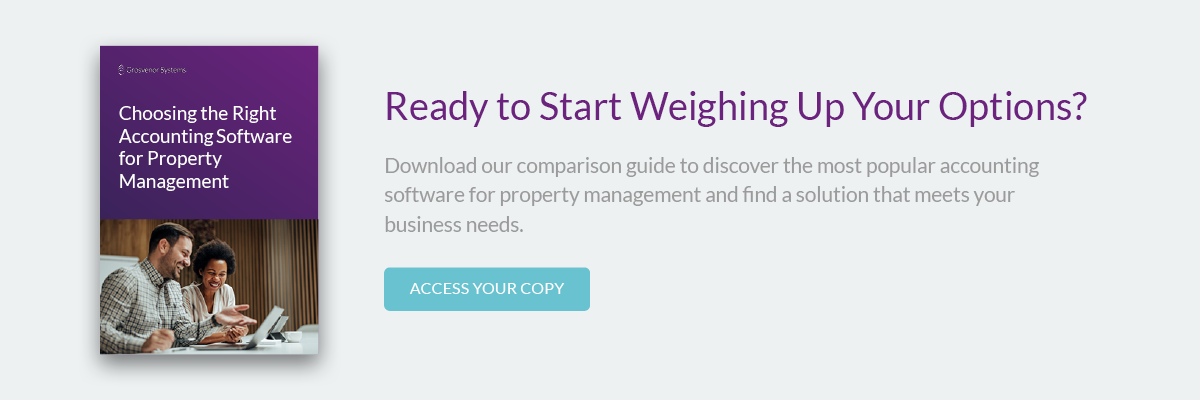8 Financial Statements Every Property Manager Needs (Updated for 2026)
Property management financial statements are the core reports used to track income, costs, arrears and performance across a portfolio. Most teams rely on a consistent reporting pack that covers income and expenditure, balances, budget vs actuals, and service charge reporting. Below are the key statements property managers use and what each one is for.
Property management financial statements: the essentials
-
Financial statements are essential for managing rental property income, costs and cash flow.
-
Key reports include the income statement, balance sheet, rent roll and accounts payable.
-
Technology like Propman can simplify reconciliation, forecasting and reporting.
-
Automating financial processes reduces risk and improves accuracy.
-
A full-featured accounting system can enhance decision-making across your portfolio.
.jpeg?width=760&name=PropertyManagerAccounts%20(1).jpeg)
Why Financial Statements Matter in Property Management
Property managers rely on financial statements to track performance, monitor expenditure and stay compliant. These reports provide visibility into income, costs, cash flow and profitability.
In this guide, we outline the eight most important financial statements for property professionals, and explain how modern technology can help you manage them efficiently.
In this article, we highlight property managers' most important financial statements. We'll also cover how the right technology can help you manage your workload effectively while performing accurate and timely tasks.
- Accounts Payable
- Balance Sheet
- Income Statement
- General Ledger
- Tenant Receivables
- Rent Roll
- Service Charge Budget Reports
- Monthly Bank Statements with Reconciliation
- The Role of Technology
1. Accounts Payable
Accounts payable describes your short-term financial obligations and helps you make sure you’re making payments to the correct vendors or suppliers. These reports also ensure you’re not carrying delinquent accounts, which are accounts that have not yet been paid despite the passing of the due date.
Payments may include:
- Insurance
- Loans and finance costs
- Utilitity bills
- Maintenance
- General goods and services
Timely tracking also prevents double payments and highlights cash flow risk before it affects your operations.
2. Balance Sheet
The balance sheet gives you a snapshot of financial position by showing the relationship between a property's assets, liabilities and equity.
- Assets: cash, land, buildings, equipment and furniture.
- Liabilities: mortgages, loan balances, accounts payable
- Equity: calculated as assets minus liabilties
This is essential for understanding net value and assessing solvency.
3. Income Statement
Also known as a profit and loss statement, this report summarises income and expenses across a defined period.
Includes:
- Revenue: rent, fees, recharges
- Expenses: utilities, maintenance, property taxes, insurance
This statement is crucial for measuring profitability and making informed decisions about pricing, repairs and service contracts.
4. General Ledger
A general ledger is the primary accounting record for your company and summarises each financial transaction found in the balance sheet and income statement. Your general ledger is the foundation of your accounting process, so it’s essential to prepare it accurately.
Covers:
- Assets
- Liabilities
- Equity
- Revenue
- Expenses
Accurate ledger management is the foundation of reliable financial reporting.
5. Tenant Receivables
This ledger refers to the individual receivable amounts from each tenant and is summarised on the balance sheet and income statement.
May include:
- Monthly rent
- Service charges
- Utilities and recharges
- Security deposits
6. Rent Roll
Rent roll predicts the revenue you can expect from a property. You can produce rent roll reports so you can analyse whether a property is meeting financial targets.
The rent roll report will include the following on each property:
- Lease dates and terms
- Estimated rental value in the current market
- Total of amounts deposited
- Recurring costs.
Essential information in the rent roll report includes gross scheduled rents, renewal rates, collections, evictions and revenue generation.
7. Service Charge Budget Reports
Service charge budget reports predict the shared costs between tenants for servicing communal areas of a property that a landlord is responsible for. Often completed annually, it outlines a plan of future expenditure, which is then divided between occupiers.
Process:
- Review historical and forecast costs
- Factor in reserve funds or planned works
- Allocate costs between tenants
This report is especially important for commercial or block managers needing to recover charges in line with lease terms and to align with the 18-month service charge rule.
8. Monthly Bank Statements with Reconciliation
This statement shows cash balances and reconciles them with internal records. It ensures alignment between your bank account and accounting system.
Used to confirm:
- All deposits and payments are recorded correctly
- No unauthorised or missed transactions
- That the general ledger reflects true bank balances
Regular reconciliation avoids errors, reduces audit risks and supports transparent reporting.
The Role of Technology
Using the right technology can take the pressure off when you’re responsible for financial reporting across a property portfolio. Specialist property management and accounting software like Propman helps you keep reporting consistent — from management accounts to service charge reporting — while also handling day-to-day property management tasks.
Propman’s accounting functionality supports the production of client-ready financial statements and reports, helping you reduce manual work, improve accuracy, and deliver a better level of service.
To help you compare your options, we’ve put together a practical guide covering the pros and cons of popular property management accounting software. Download your free copy below.
Prefer to see what reporting looks like in practice? Book a Propman walkthrough.
.png?width=1920&height=941&name=GS%20white%20clear%20(Large).png)

